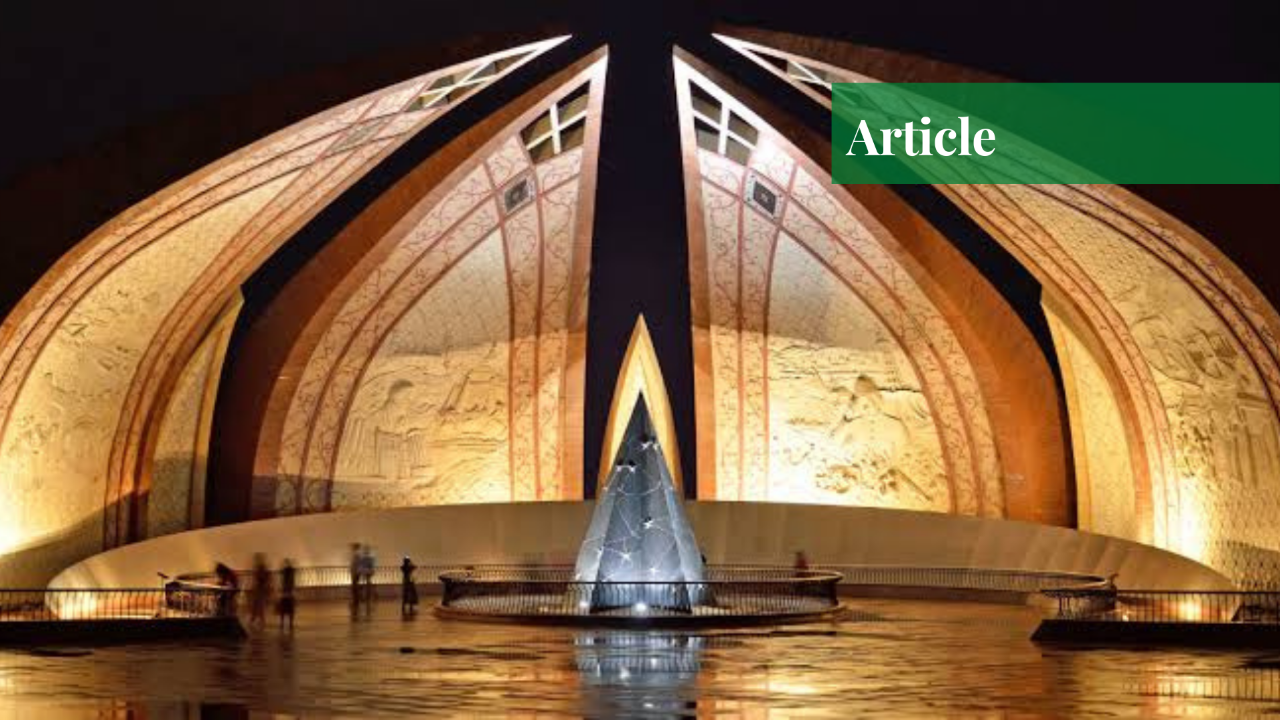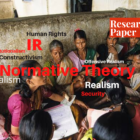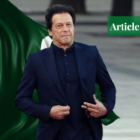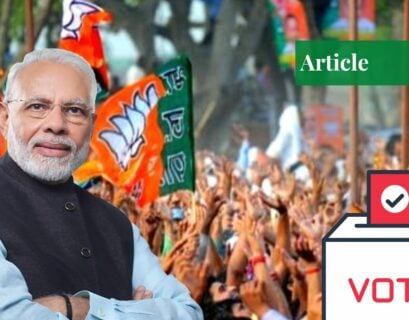Mr Muhammad Hamza Tanvir is an independent journalist and a political analyst, focusing primarily on regional and global strategic and political issues. He has authored numerous articles for different national and international publications.
Power in International Relations
Power is no doubt the most significant notion of International Relations. The concept of power has been in use ever since the writing of eminent scholars such as Machiavelli and Thucydides. However, this notion has been understood only in a very limited and narrow scope. Realists interpreted ”power” as “strength of war”. Even in the modern era, many political leaders seem to be aloof of a wide perception of the term – power – and only consider hard power as the sole kind of power.
This misconception has resulted in several wars including World War I and World War II. A similar understanding of power is vivid from a statement of the Prime Minister of Pakistan. In February 2021, Prime Minister Imran Khan, while addressing at the launch of a documentary film, stated that Pakistan should hamper striving for creating a soft image of the nation by pleasing the West as it is a mere symbol of an inferiority complex.
Such statements by a statesman depict that they hold a very imprecise understanding of the term “soft power”. In today’s world, the idea of power has changed to a great extent; it is not solely limited to material strength, and its scope has become much wider. The soft image of a country, nowadays, is considered a key to power as it generates soft power.
General Opinion of the Public
In a recent poll conducted by Paradigm Shift, 86% of the participants opined that soft power was crucial for Pakistan, but when some of them were personally interviewed, their answers evinced that much of them had very less understanding of what soft power was – in a broader sense – and they also asserted that it was only crucial for developing states – like Pakistan – to create its soft image as they are dependent on other states for meeting their needs.
They also agreed with the Premier on his statement regarding the creation of a soft image as being a symbol of inferiority complex and lack of self-confidence: this delineates the understanding of a nation about soft power and its significance.
This misunderstanding shows the real reason for the tarnished image of the country – since 9/11 – as the world still associates it with terrorism and extremism and why the attempts made to represent a truer image have not been successful in their spirit. Given the significance of Soft Power in this era of technology and science, Pakistani’s – especially the policymakers – need to end their misconceptions about it.
What is Soft Power?
The term soft power was first coined by Joseph Nye. Soft power means, in simple words, using one’s resources to affect others through cooptive means and attraction, rather than coercion or economic incentives. He considered culture, political values, and foreign policy as the staple sources of soft power.
Many scholars believe that this list of basic constituents of soft power includes a state’s governance, human rights record, its educational, scientific, and technological prowess, entertainment, tourist attraction, communication and media, heritage, and business practices as well.
Soft power can also be attributed to effective public diplomacy. It can be described as a process of seeking to build trust and understanding by engaging the public of a foreign state beyond government relations. This public influence can then be used as pressure to influence the foreign governments in achieving the desired outcome.
Although the term soft power was first coined in the 90s, if we look back at the history of the world, soft power existed long before that. It will be cogent to say that the spread of Islam in its early days was a remarkable instance of persuading others by using intangible sources such as culture, morals, fundamental values, and principles. So, soft power existed centuries before Joseph Nye introduced this term in the world of theory.
The Use of Media
Some people merely consider the promotion of tourism as a key feature of promoting a soft image. This is not true. In the modern era of information and media, national branding through media is one of the most significant ways of boosting the soft image of a nation. Recently, Turkish serials, Resurrection: Ertugrul and Dirilis: Osman, have been among the viewed serials in Pakistan and many other Muslim countries.
Through these serials, Turkish President Erdogan has succeeded to be considered as the beacon of hope for the Ummah. Similarly, they have raised the respect of Turkish people in other countries. This is how media could be used to further the national branding of a state and creating influence over the public of other countries. India has also been doing the same through its movies and dramas.
India created this impact without any military intervention, only through its media. Indeed, a country’s military might and economic resources matter most, but they are not the sole determinants of its standing in the international clout. The positive image of a country can play a pivotal role in earning respect and magnifying its diplomatic weight in the international arena.
Is It Only Necessary for Developing Nations?
Now turning to the question of whether soft power is only crucial for developing states. The modern era has also transformed the nature and parameters of power. Prime Minister Imran Khan’s statement and the views of most of the participants of Paradigm Shift exhibit a sheer misconception that soft power is only the need of developing countries to please their masters.
The reality is far from that misperception. In this era of multipolarity, soft power is as significant for developed countries as it is for developing countries. As per Hans Morengthau, “all politics is a power struggle”. Similarly, the leading powers of today’s world are competing to dominate each other. The most prominent example is that of China and the United States of America.
In the recent issue of the Covid-19 outbreak, the then American government did not leave any stone unturned to malign the image of China, declaring the latter to be the root cause of the outbreak in the whole world. China, on its part, elevated its image by successfully curbing the coronavirus and then by extending help to 80 countries. Recently, it has also offered help to India to fight against the worst-ever outbreak of the pandemic.
This offer of assistance – when the United States betrayed India in this turbulence – has created a positive public opinion about China and there is a strong outrage against the US among the Indian public. Similarly, China is investing a behemoth amount of money in African countries. This investment in building the infrastructure of these countries has increased the soft power of China as all these economically weak countries have equal votes in United Nations.
Thus, this has not only increased China’s influence in the UN but has also provided a potential market for Chinese goods. China’s policy of making deals with the countries outside the ambit of international sanctions has provided great leverage to elevate its soft image. Recently, China has signed a $400 deal with Iran despite the US sanctions on the latter. This makes China more reliable and countries betrayed by the West are now looking towards China as their new patron.
The United States of America, on the other hand, is trying to do its best to counter the increasing influence of China. It has introduced the Prosper Africa project under the umbrella of USAID; this project seems merely to uplift the people of African countries, but its main aim is to counter China and increase the influence of America in these states.
Similarly, the US has tried every possibility to create an image of China as a new East India Company in Pakistan and has offered many loans to the latter to halt the CPEC project. This was not just to hinder China from reaching the Arabian Sea but also to curtail its burgeoning influence in South Asia and Central Asia.
One thing important to note, in my opinion, is that the worst complication the US is facing in promoting its soft image is due to its past image of leaving its friends in the lurch in the troubled waters as it did recently with India and with Pakistan in the war of 1965. Another example would be of it betraying the Kurds after using them against ISIS.
This, along with many other instances, has created an image of the US as an unreliable companion. The use of soft power in strategies by the world’s two most powerful states evinces that this is the need of modern times – as it supplements the “hard power” – and it negates the notion that countries striving for promoting the soft image, lack self-confidence.
Pakistan’s Soft Power
Pakistan ranks 63rd in the Global Soft Power Index, 2021 which is even lower as compared to the countries ranking in the previous year. This could be because of the changing ideology of Prime Minister Imran Khan who considers striving for a soft image as an inferiority complex. Unfortunately, Pakistan is deemed as a country full of terrorists and extremists.
Pakistan holds very little soft power in the global clout. There are various reasons for the failure of Pakistan in achieving a significant standing abroad. The most significant reason is a lack of national branding despite being the sole Muslim nuclear country. Unlike Turkey, Pakistan has never made any attempts to portray itself as the hero of the Muslim world.
Pakistan can do so by glorifying Muslim heroes like Muhammad Bin Qasim, Sultan Shahab-ud-din Ghori, Sultan Mehmood Ghazanwi, etcetera. Another dilemma with Pakistan is that its national values keep changing with political and military leaders after every few years. In Pakistan’s case, the military establishment’s excessive input in foreign affairs has rendered the foreign office impotent in the task of formulating and implement a coherent foreign policy.
If Pakistan does not make a coherent foreign policy, it can never achieve the desired outcome in the sense of soft power. India, despite being a country filled with terrorism, extremism, and its inhumane treatment of its minorities, has been successful in attracting tourists due to its image building and branding through media.
It is time for Pakistan to learn from its neighbors and Turkey, and build its national brand. In the wake of the recent attacks by Israel on Palestine, Pakistan can develop its brand on the foundations of the leader of the Muslim world, humanitarianism, justice, environment, and modesty. Pakistan is home to some of the highest mountains in the world, and it has historic religious sites for Buddhists, Hindus, and Sikhs.
Another tool that Pakistan can effectively use to promote public diplomacy and the soft image is the student exchange programs. As these programs are merit-based, they usually attract the most brilliant students of the country who are most likely to serve at influential positions in their homeland in the future. Thus, it can also assist Pakistan in its foreign policy objects.
In response to the allegations of the world on Pakistan being a terrorist state, we must highlight the teachings of great sages and saints like Hazrat Data Ganj Bakhsh, Hazrat Bahud din Zakria, Hazrat Lal Shahbaz Qalandar, and Sufi poets like Hazrat Mian Muhammad Bakhsh and Hazrat Waris Shah.
The recent documentaries on the tourist places of Pakistan by the government are a commendable step by the government of Pakistan which is at the odds with the premier’s statement about building a soft image. Similarly, the country’s steps to curtail deforestation and raising a voice against the atrocities in Kashmir and against climate change are laudable. Pakistan’s government should keep following this policy, for the current situation crucially requires soft power.
If you want to submit your articles and/or research papers, please check the Submissions page.
The views and opinions expressed in this article/paper are the author’s own and do not necessarily reflect the editorial position of Paradigm Shift.



















